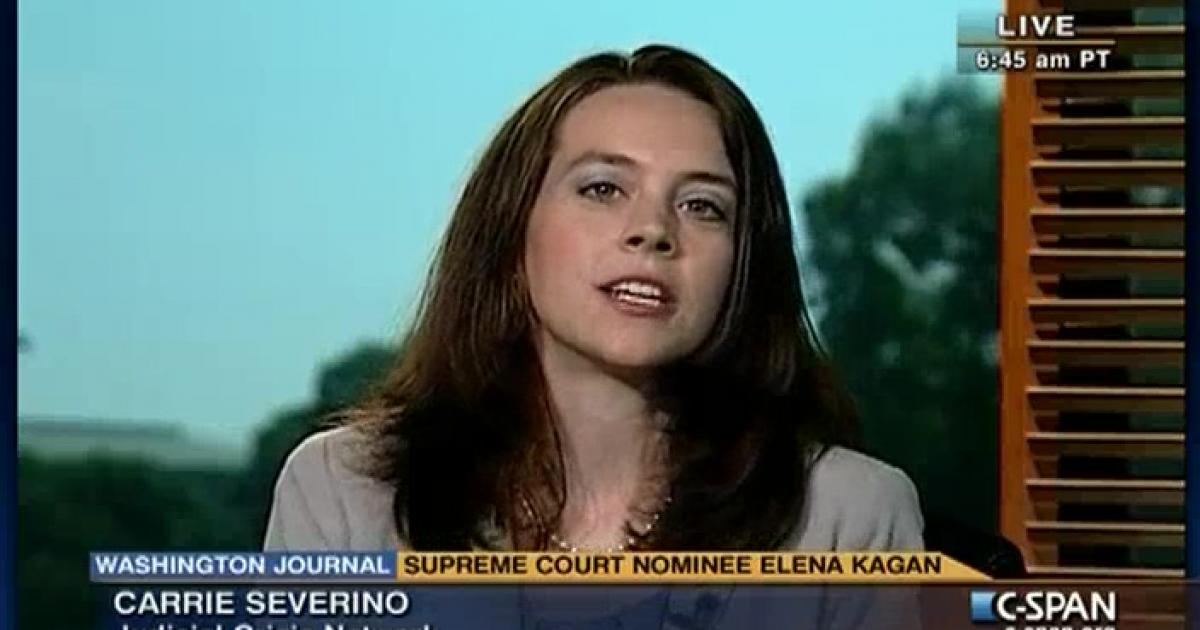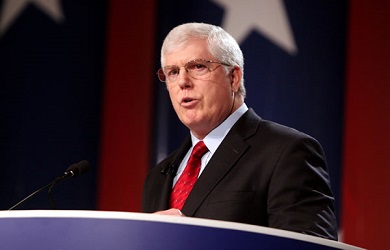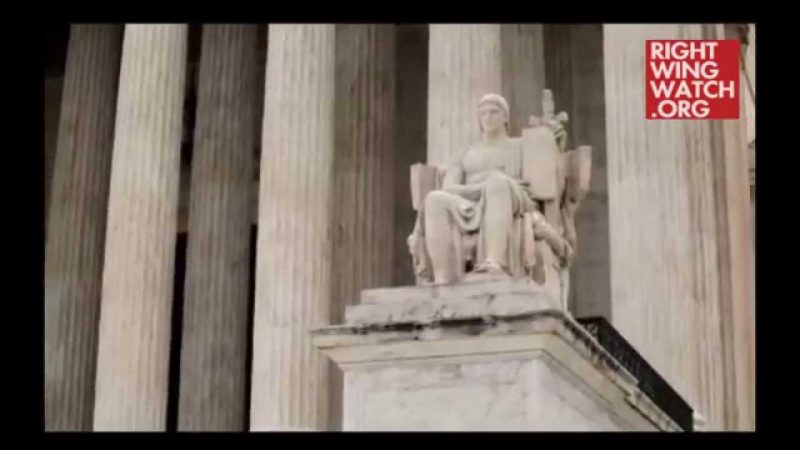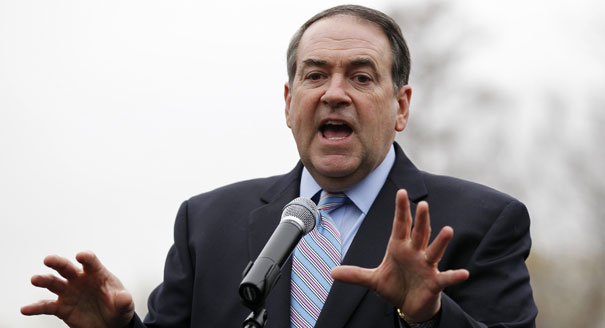A few weeks ago, Justice Ruth Bader Ginsburg was speaking to students at the University of Minnesota Law School when she made the rather straightforward observation that if 6th Circuit Court of Appeals follows other recent court decisions and strikes down gay marriage bans in Kentucky, Michigan, Ohio and Tennessee, then the prospects of the Supreme Court taking up the issue of marriage equality would be less likely in the near term.
The reasoning behind this statement is that if appellate courts consistently strike down such bans, then the Supreme Court will not need to get involved right away whereas, if the 6th Circuit were to uphold such bans, that would create a conflict among recent appellate rulings and so, as Ginsburg said, “there will be some urgency” for the Supreme Court to take up with issue in order to address those conflicting rulings.
There is nothing controversial or improper about this obvious observation, but anti-gay Religious Right groups have seized upon it to launch a campaign demanding that Ginsburg recuse herself from any Supreme Court case involving the issue of marriage equality on the grounds that she has violated the Judicial Code of Conduct by “making public comment on the merits of a pending or impending action.”
As Liberty Counsel, which first launched this effort, declared:
“In casting a vote publicly before the case is even heard, Justice Ginsburg has violated the Judicial Code of Conduct,” said Mat Staver, Founder and Chairman of Liberty Counsel. “It is now her duty to recuse herself from cases involving same-sex marriage.”
According to Canon 2 of the Judicial Code of Conduct, “A judicial employee should not lend the prestige of the office to advance or to appear to advance the private interests of others.”
Canon 3(D) declares, “A judicial employee should avoid making public comment on the merits of a pending or impending action.”
“Justice Ginsburg’s comments implied that the merits of the state constitutional amendments defining marriage as one man and one woman were such that the Supreme Court would have to overturn them with haste, if upheld by the Sixth Circuit Court of Appeals,” said Staver. “This is an inappropriate comment for any judicial employee, much less a Supreme Court Justice!”
The call has since been echoed by the Foundation for Moral Law, Faith 2 Action, and the American Family Association, where Bryan Fischer and former Liberty Counsel attorney Steve Crampton recently discussed the need for right-wing activists to “beat on our pots” in order to create so much political pressure on Ginsburg and Justice Elena Kagan that they have no choice but to recuse themselves from any such cases.
In fact, just yesterday, Fischer wrote a column arguing that Ginsburg and Kagan would be “committing a federal crime” if they did not recuse themselves:
The Supreme Court will, perhaps even in this session, take up the issue of sodomy-based marriage. If it does, justices Ruth Bader Ginsburg and Elena Kagan will have an obligation to step off the bench for those cases on the grounds that their impartiality has been severely compromised.
Both have performed sodomy-based “wedding” ceremonies. Kagan performed her first one on September 22 of this year, and Ginsburg has done the deed multiple times, including at least one in the Supreme Court building itself. Thus they have clearly tipped their hand by their actions as well as their words. They have publicly demonstrated that their minds are already made up on the issue. It is inconceivable that either of them now would vote against the “marriages” they themselves have solemnized. They would stand self-condemned.
…
[T]he necessity for Kagan and Ginsburg to recuse is not just a matter of fairness or rightness. It’s also a matter of law. They have a statutory obligation to recuse. If they refuse to step off the bench when and if marriage cases come before them, they would be breaking federal law. They would be, from a strictly legal standpoint, committing a federal crime. Their sacred responsibility is to uphold the law, not break it.
So it was with great interest that we read this article in The Washington Times yesterday reporting on remarks made by Justice Antonin Scalia at Colorado Christian University in which he stated that the separation of church and state is “utterly absurd” and the idea that the government must remain neutral on the issue of religion is “just a lie”:
Supreme Court Justice Antonin Scalia said Wednesday that secularists are wrong when they argue the Constitution requires religious references to be banished from the public square.
Justice Scalia, part of the court’s conservative wing, was preaching to the choir when he told the audience at Colorado Christian University that a battle is underway over whether to allow religion in public life, from referencing God in the Pledge of Allegiance to holding prayers before city hall meetings.
“I think the main fight is to dissuade Americans from what the secularists are trying to persuade them to be true: that the separation of church and state means that the government cannot favor religion over nonreligion,” Justice Scalia said.
“That’s a possible way to run a political system. The Europeans run it that way,” Justice Scalia said. “And if the American people want to do it, I suppose they can enact that by statute. But to say that’s what the Constitution requires is utterly absurd.”
…
“We do him [God] honor in our pledge of allegiance, in all our public ceremonies,” Justice Scalia said. “There’s nothing wrong with that. It is in the best of American traditions, and don’t let anybody tell you otherwise. I think we have to fight that tendency of the secularists to impose it on all of us through the Constitution.”
The biggest danger lies with judges who interpret the Constitution as a malleable document that changes with the times, he said.
“Our [the court‘s] latest take on the subject, which is quite different from previous takes, is that the state must be neutral, not only between religions, but between religion and nonreligion,” Justice Scalia said. “That’s just a lie. Where do you get the notion that this is all unconstitutional? You can only believe that if you believe in a morphing Constitution.”
Given that Scalia was very clearly “making public comment” in a way that directly relates to a whole host of church-state separation questions that could potentially come before the Supreme Court at any time, we trust that these Religious Right groups will now demand that he recuse himself from any such cases as well, right?








